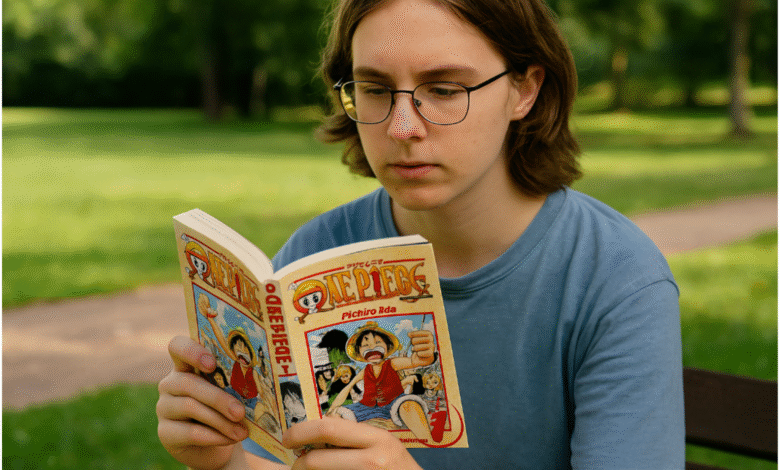What is the morality of One Piece ?

Imagine chasing a dream so vast, it stretches across oceans and generations. That’s the heartbeat of One Piece. Far beyond epic battles and devil fruits lies a powerful core—a tapestry of values and life philosophies that shape every character and arc. One Piece isn’t just a long-running anime; it’s a modern myth loaded with lessons on freedom, loyalty, justice and what it really means to live with purpose. Many Aussie fans—whether long-time followers or curious newcomers—often ask the same question: what is the real message behind One Piece? This article dives straight into that answer. No fluff, no sidetracks—just clear insights into why this story matters, what it really teaches, and why its impact goes far beyond entertainment.
Freedom is the soul of the story
At its core, One Piece is a story about uncompromising freedom. Monkey D. Luffy doesn’t seek power for domination—he chases the freedom to live life on his own terms. He wants to become Pirate King not to rule others, but to be the freest man on the seas. That distinction sets the tone for everything that follows. This focus on autonomy and independence resonates deeply with Australians, who often value honesty, mateship and the freedom to live life authentically. Luffy’s journey mirrors that Aussie spirit. He doesn’t obey authority blindly. He challenges injustice, even if it puts him at odds with powerful systems. And he never forces others to follow his way—he inspires them through action. Characters throughout the series have dreams of their own. Zoro wants to be the world’s strongest swordsman. Sanji seeks the mythical All Blue. Robin craves historical truth. Each character’s goal is deeply personal, yet Luffy encourages them without judgement. This acceptance and support of diverse dreams teaches us that freedom doesn’t mean isolation—it means having the space to grow alongside others who believe in you.
And for fans looking to bring that spirit into their daily life, displaying a few meaningful One Piece figures in your home or workspace is more than decoration—it’s a reminder to live boldly. Even more inspiring is how Luffy’s freedom isn’t just physical. It’s emotional. He doesn’t fear showing joy, pain or anger. His ability to be completely himself is what draws people in—both within the story and among fans around the world. It’s a lesson many overlook in the age of curated social images: true freedom begins with emotional honesty. And if you’re new to collecting or exploring anime art, you can find authentic selections through anime figures australia, which curates quality collectibles to match both aesthetic and meaning.
Friendship is more than a theme—it’s law
In One Piece, friendship isn’t a subplot. It’s the backbone of the entire narrative. Luffy doesn’t just gather a crew—he creates a chosen family. And unlike many stories where friends fall away or betray each other, in One Piece, the bonds only grow deeper. The Straw Hat Pirates risk everything for one another, not out of obligation, but from pure belief in each other’s worth. Whether it’s Nami’s tears during Arlong Park, or Zoro taking on Luffy’s pain during the Thriller Bark arc, the loyalty within this group runs deeper than blood. For Aussie readers used to valuing mateship and having your mate’s back, this theme hits home.
There’s no superficial unity here. Conflicts arise. Differences are highlighted. But trust always wins. In fact, many of the show’s most memorable moments stem from acts of deep sacrifice. It teaches us something often lost in fast-paced, transactional friendships: loyalty is shown in action, not words. And it’s not just the core crew. One Piece continually introduces characters who are impacted by these values. From Vivi to Jinbei, the emotional ripple effects of the Straw Hat’s ethos reach across the Grand Line.
Justice isn’t black and white
The moral compass in One Piece isn’t straightforward. The Marines claim to uphold justice, yet commit atrocities. Pirates, usually framed as criminals, often display the most empathy and courage. This deliberate complexity forces viewers to question authority and challenge simplified notions of good and evil. Justice in One Piece is deeply flawed—and that’s the point. The story suggests that laws don’t always serve fairness, and that individual morality often carries more weight than systemic rules. It’s a lesson especially relevant in today’s world, where people across Australia and beyond grapple with trust in government and institutions. Characters like Akainu and Fujitora represent extremes. Akainu believes in “Absolute Justice”—at any cost. Fujitora, on the other hand, pushes for reform from within. This ideological spectrum makes the story rich, but also deeply reflective of real-world debates.
Dreams matter more than outcomes
At first glance, the chase for the One Piece treasure might seem like a classic hero’s journey. But over time, it becomes clear that the actual treasure is secondary. What truly matters is the journey, the growth, and the people Luffy gathers along the way. This is where the metaphor becomes powerful: One Piece isn’t just a story about achieving a goal—it’s about the pursuit itself. The series reminds us that dreams give life direction, courage and meaning—even if the destination remains uncertain.
A mirror of our world through a fictional lens
Beyond its fantastical setting, One Piece reflects real societal issues—corruption, inequality, censorship, identity, and historical erasure. The World Government suppresses truth. Slavery exists in shadowed corners of the world. Class divides are embedded in the very geography of the series. But rather than being cynical, One Piece remains hopeful. It offers a model of how flawed individuals, driven by purpose and heart, can change the world—one act of courage at a time.
Final thoughts
One Piece offers more than an adventure—it delivers a moral framework rooted in freedom, loyalty, justice and purpose. For fans in Australia and beyond, it’s not just entertainment but a philosophy. And perhaps the greatest lesson of all? Never stop chasing the horizon—because meaning lies in the journey itself.
Key ideas summarised
- Freedom as core value
- Power of emotional honesty
- Loyalty in action
- Morality beyond laws
- Dreams as driving force
- Societal reflection
- Emphasis on growth
- Importance of chosen family


